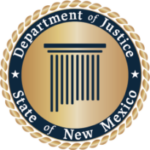Home » Get Help
Get Help
The New Mexico Department of Justice may be able to help you find the resources that you need.
Loading...
Resources
Related Content
- Charities
- Extreme Risk Firearm Protection Order Act
- Fire Recovery
- Human Trafficking
- Identity Theft
- Inspection of Public Records Act
- Internet Protection & Safety
- Open Meetings Act
- Professional Fundraiser Registration
- Service of Process
- SMART CHATS
- Special Commissions
- Submit a Complaint
- Tobacco Settlement




